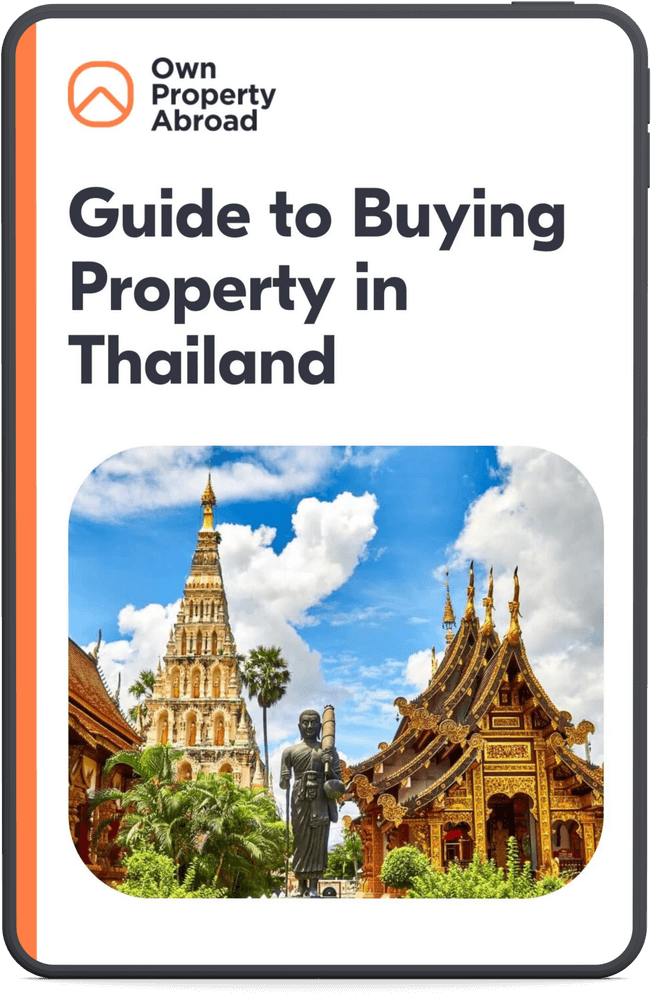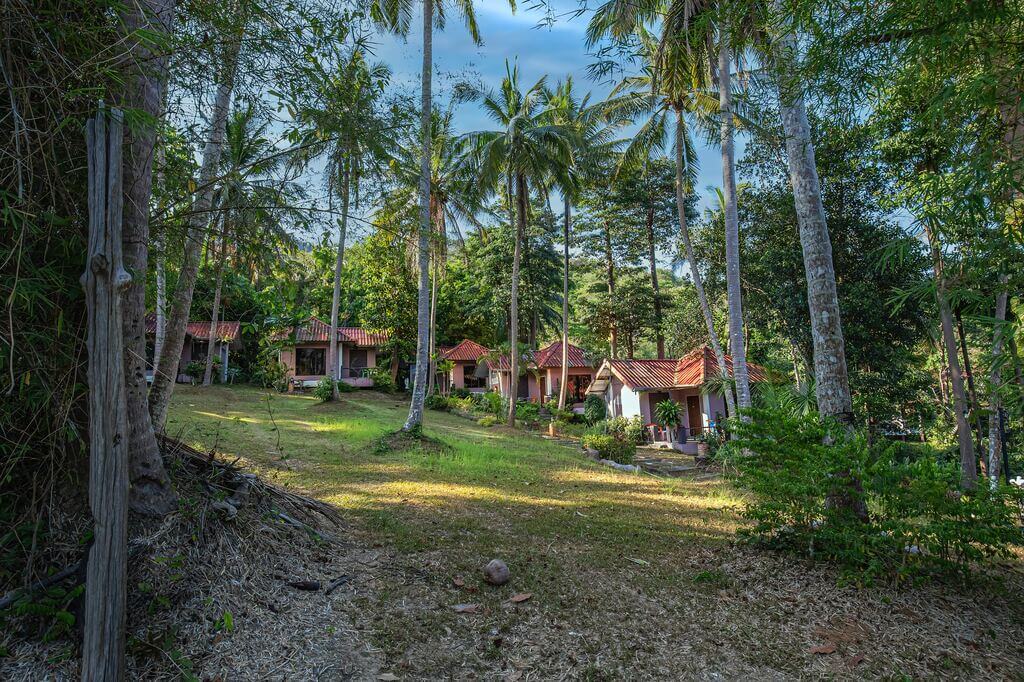What is due diligence?
Due diligence is a crucial step taken before entering into any business transaction. It serves the purpose of making sure the deal is legal and no problems are involved.
In the due diligence for buying land or a condo, this process determines if the property has no problems, such as with the law and regulations. To do this, look at risks, do some math, and investigate to ensure the deal is okay and entirely legal.
Usually, the due diligence research is conducted after making an offer and before the deal is finalized. In Thailand, the buyer typically has one to five weeks to do all investigations, depending on the terms agreed upon with the seller of the property.
Valuable insights and practical advice, distilled from years of expertise and real-world experience.


Is due diligence in Thailand necessary?
Yes, it is necessary to conduct due diligence in Thailand. When buying or selling a property in Thailand, especially as a foreigner, it’s essential to conduct due diligence as there is always a risk of dealing with individuals who may not be legitimate property owners. This could potentially lead to financial losses or dealing with illegal documentation.
In these concerns, there are several legal issues to watch out for:
- A hidden loan on the property that surfaces after the purchase can cause unexpected financial problems.
- Past legal troubles of the property’s former owner could lead to complicated situations once you become the new owner.
- Problems concerning tax payments might cause unexpected financial burdens.
- If the building doesn’t comply with Thai regulations, it could lead to getting fined or paying a lot of money for repairs.
- Any conflicts with the property ownership can result in legal disputes.
Do you want to buy or sell property in Thailand? With our expert team, you won’t have to navigate the complexities alone. For further information on how we can assist you, kindly drop your details below or email us at [email protected]. Let’s start working on your property success story today!
16 guidelines to perform property due diligence in Thailand
Land due diligence in Thailand is crucial to ensure a smooth and secure transaction. The same counts for due diligence on houses, buildings, and condos. To assist in the process of property due diligence in Thailand, hire a local legal expert with expertise in handling real estate transactions in Thailand.
Below are 16 guidelines, which you can use as a land due diligence checklist in Thailand, that foreign buyers or sellers should be aware of.
1. Confirm ownership and verify land title deed authenticity
Start by confirming the ownership of the property and verifying the authenticity of the land title deed to avoid legal issues with the change of ownership.
2. Check for transfer restrictions
Make sure no transfer restrictions are associated with the title deed. Transfer restrictions can complicate the buying or selling process.
3. Validate title issuance process
Ensure that the operation of the title issuance will be legally valid. This will prevent problems with transferring the land or property title.
4. Review past property transactions
Investigate past property transactions to see if there are any restrictions, legal permissions, or specific rules imposed by previous owners. Uncovering these issues after the transaction can cause legal problems.
5. Building restrictions and permits
Look into potential building restrictions and verify that the existing building permit matches the property’s structure. The local government issues the permit and ensures compliance with zoning regulations.
6. Verify the property value
Confirm the property’s registered value to ensure it aligns with market rates and is not overvalued or undervalued. You can hire a real estate agent to value the property.
7. Ensure access to land
Ensure legal access to the land through public roads or registered private road access. If there’s no access yet, then it is essential to discuss with the neighbors about constructing a road.
8. Bankruptcy and civil records
Search bankruptcy and civil court records to gather information about the current landowner, which can provide additional insights.
9. Land survey
Consider hiring a licensed surveyor to conduct a land survey to determine the exact size and boundaries of the land accurately.
10. Building and zoning regulations
Check for any building or other restrictions based on building and zoning regulations and other applicable laws related to nature reserves, protected forest land, environmental regulations, or local ordinances. These regulations differ per region in Thailand.

11. Occupancy and rights of use
Determine if anyone currently occupies the land or has rights of use over it, such as through a leasehold agreement, as this may indicate potential disputes or existing servitudes.
12. Drainage and subsidence
Assess concerns related to drainage and subsidence, especially if the property is located on hill slopes or has dirt roads that may become impassable during the rainy season.
13. Utility availability
Investigate the availability of essential utilities such as water and electricity and understand the process for connecting to the grid, particularly for electricity. Also, evaluate waste disposal methods, treatment systems, and access to telephone and cable services.
14. Address issues with neighbors
Discuss any conflicts or issues with residents, including noise disturbances, neighboring land-related disruptions, drainage problems, or access challenges.
15. Review the sales agreement
Review the conditions outlined in the sale agreement and clarify the responsibilities of all parties involved to ensure a fair deal. Hiring a third legal agent or lawyer to review the sales agreement before signing is advised.
Thailand title deed documents
When buying real estate in Thailand, it’s crucial to understand the various types of title deeds. Understanding these deeds is essential for foreigners conducting property or land due diligence in Thailand. The most critical title deed documents are outlined below.
1. Chanote (Nor Sor 4 Jor) land title deed
Thailand’s Chanote land title deed, also known as Nor Sor 4 Jor or NS4J, is a land title document certifying private land ownership. It stands out due to accurate land surveys with numbered boundary posts, ensuring exact property records. It’s important to understand that foreigners can not own the Chanote title deed for land in Thailand.
In developed areas, Chanotes are the most common title deeds for buying or leasing land. They grant substantial ownership rights in Thailand. Despite variations in appearance, their core information remains legally binding. Chanote also covers condominiums, which foreigners can own.
2. Nor Sor Sam (NS3) and Nor Sor Sam Gor (NS3G) land title deed
A Nor Sor Sam land title grants the right to possess and use the land as a private owner. This title doesn’t provide full ownership over the land but offers legal recognition of land rights within the country. There are two types of Nor Sor Sam title deeds:
- Without extensions: Those may need additional steps for surveying and require a 30-day dispute notice.
- With Gor or Khor extensions: Those are surveyed accurately and don’t require a 30-day notice.
Nor Sor Sam can be upgraded to Chanote status for more secure land ownership.
3. Sor Kor Nung (SK1) land title deed
Sor Kor Nung, also known as SorKor1 or SK1, is a notification form that grants the holder the right to own and utilize the land without needing confirmation from the land department. The holder can use the land for agricultural purposes without owning the land through the land department.
It’s important to note that while Sor Kor Nung provides temporary ownership and use rights, it does not grant full legal ownership of the land. If someone wishes to upgrade this form to a higher land title, such as Nor. Sor. 4, they need to seek court approval.
Sor Kor Nung can not be transferred or inherited, meaning it can’t be bought, sold, or passed down through generations. However, the form itself can be transferred or inherited.
4. Nor Sor Song (N.S. 2) land title deed
Nor Sor Song is a type of permission letter from the land department that allows temporary land use. The person holding it has to start using the land within a specific time. This permission can’t be sold or given to someone else, except if it’s passed on to family members after the holder has passed away.
Even if someone wants to upgrade to a better land title, there are still rules about selling or transferring the land. Having Nor Sor Song doesn’t mean full land ownership, but it can better be seen as borrowing the land for a specific period.
Property due diligence in Thailand with Own Property Abroad
Are you considering conducting property due diligence in Thailand? Those who want to buy property in Thailand should first perform property due diligence. With our expert team, you won’t have to navigate the complexities alone. For further information on how we can assist you, kindly drop your details below or email us at [email protected]. Let’s start working on your success story today!
Valuable insights and practical advice, distilled from years of expertise and real-world experience.


Frequently Asked Questions (FAQs)
What is property due diligence in Thailand?
Property due diligence in Thailand involves evaluating a property and its documents before purchasing or investing. It involves assessing the property’s legal, financial, and physical aspects to ensure that it meets your requirements and is free from potential risks.
Why is property due diligence in Thailand important?
Property due diligence in Thailand is crucial to avoid legal, financial, and structural issues. It helps identify any encumbrances, disputes, or hidden problems associated with the property, ensuring a safe and secure investment.
What legal aspects should I consider during property due diligence in Thailand?
You should check the property’s title deed (Chanote) to verify ownership and ensure it’s free from liens or encumbrances. Additionally, assess zoning regulations, land use restrictions, and any pending legal disputes related to the property.
How can I verify the authenticity of the property documents?
Hire a qualified lawyer or legal professional specializing in Thai real estate to review and authenticate all property documents. They can help ensure the documents are genuine and accurate to ensure smooth property due diligence in Thailand.
Are there any restrictions on foreign property ownership in Thailand?
Yes, Thailand has restrictions on foreign property ownership. Typically, foreigners can only own condominium units or properties within designated condominium buildings. It’s important to understand these restrictions and comply with Thai property laws.
What happens if issues are discovered during due diligence?
If you discover issues with the property during the due diligence process, you can negotiate with the seller to address them, revise the purchase agreement, or even withdraw from the transaction if the issues are insurmountable. Thorough due diligence helps you make an informed decision regarding the property.




